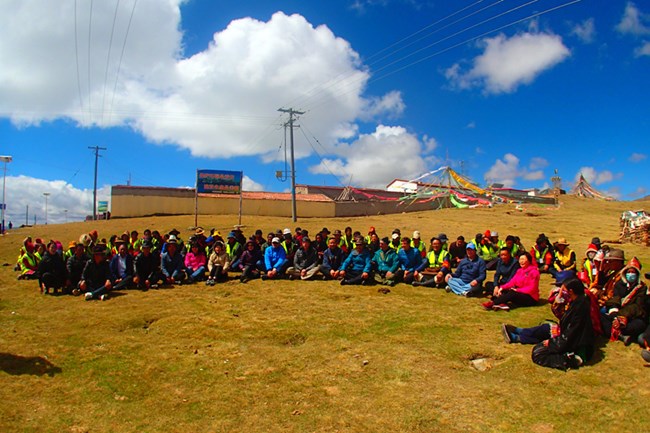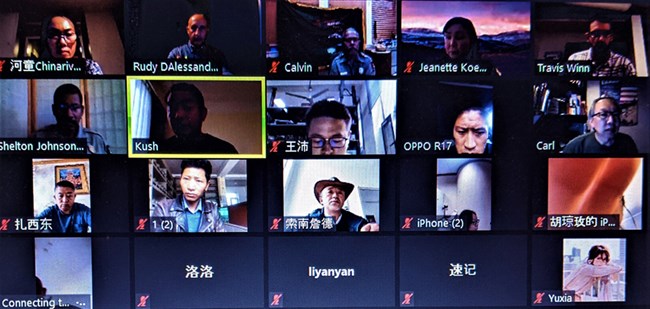Last updated: May 7, 2021
Article
NPS mentors Chinese-Tibetan community rangers
Well-managed national parks benefit not only the park’s resources and surrounding communities but also the broader global environment. The NPS Office of International Affairs mentors park colleagues across the world as they strive to manage the natural and cultural resources in their countries. One example is the partnership work at a new national park in China.

In 2014, NPS OIA began collaborating with non-governmental organizations as well as NPS park staff and retirees to advise the government of China as it endeavors to establish a Chinese national park system. To support the effort, OIA is working with former Chinese park official Rose Niu and her colleagues at the Chicago-based Paulson Institute as well as former NPS Director Jon Jarvis and Global Parks, an organization of NPS retirees. The group coordinated a series of three US study tours for Chinese government park officials between 2016–18. The visits to several US national parks immersed them in best practices for park management.
In May 2019, at the request of the Chinese Ministry of Environment and Ecology, the American team traveled to the province of Qinghai in northwest China to make an assessment and offer recommendations for strengthening the management of what will be the world’s largest land-based national park, Sanjiangyuan. While there, the team met and spoke with ethnic Tibetan community rangers who expressed their pride in contributing to the creation of the park and gathering critical environmental data within their ancestral lands.

In September 2020, OIA hosted a webinar for many of the same Tibetan community rangers who met the American team in China the prior year. OIA recruited Horace Albright Training Center Instructor Calvin Liu, Yosemite National Park Ranger Shelton Johnson, and Bering Land Bridge National Preserve Superintendent Jeanette Koelsch to share their personal experiences as NPS employees.
The virtual mentoring will continue as OIA and its partners collaborate with overseas colleagues in the conservation of the planet’s extraordinary resources.
